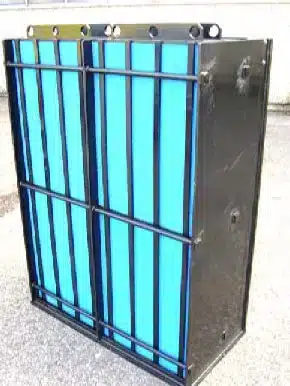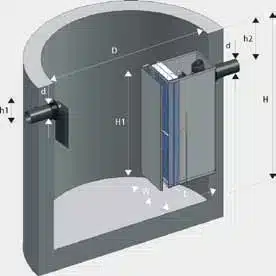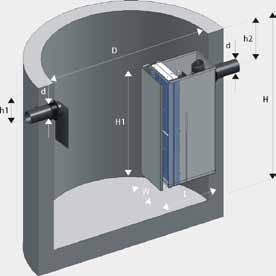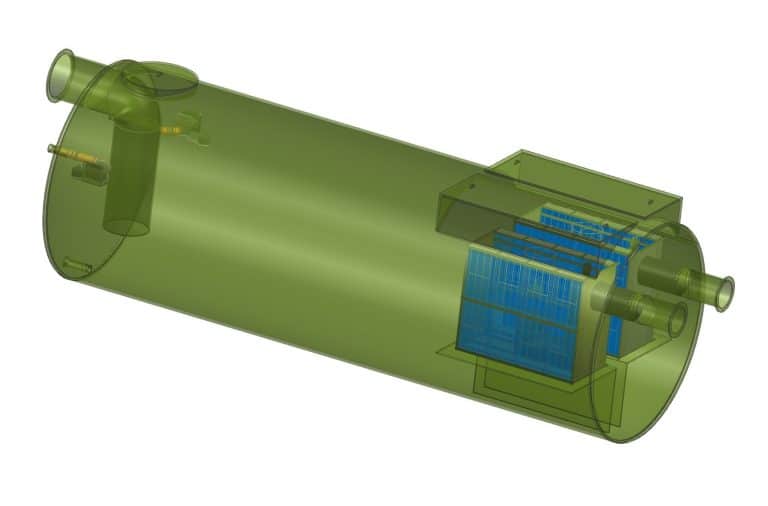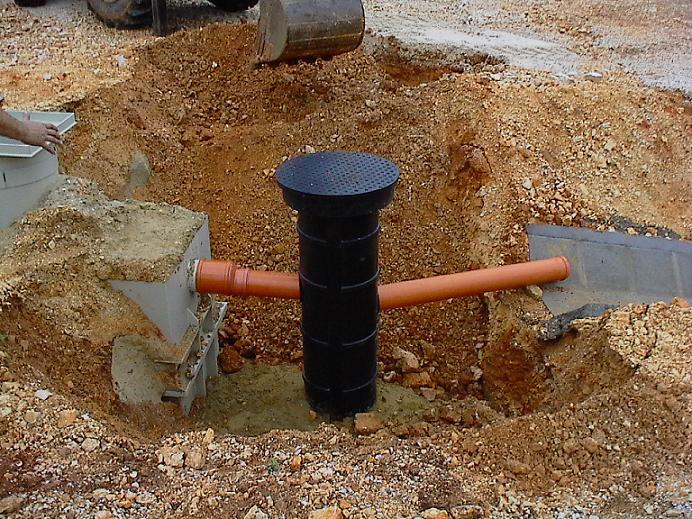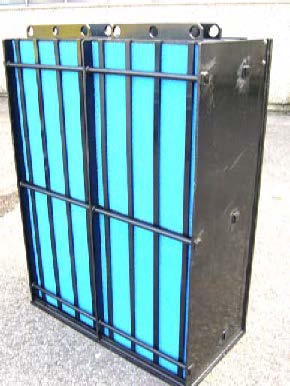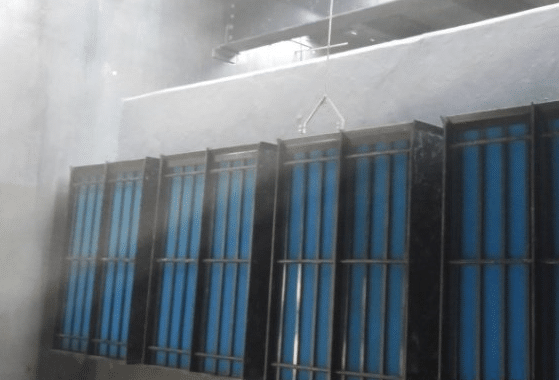Ever wondered how Tennessee keeps its wastewater clean and follows strict environmental laws? The answer is under our feet. Freytech Inc. Tennessee Below Ground Oil Water Separators are key in treating industrial wastewater and managing stormwater in the Volunteer State.
These systems work hard to take out oil, grease, and other harmful substances from water before it goes into the environment. They are found in busy factories and truck stops all over Tennessee. These separators are the quiet heroes of protecting our water.
As Tennessee grows, the need for good oil-water separation grows too. These systems make sure businesses follow the rules and protect our water for the future.
Key Takeaways
- Below ground oil water separators are essential for environmental compliance in Tennessee
- They remove oil, grease, and hydrocarbons from industrial wastewater and stormwater
- These systems help protect Tennessee’s waterways and groundwater
- They are vital for industries, commercial facilities, and municipalities
- Effective oil-water separation is crucial for meeting state environmental regulations
Understanding Below Ground Oil Water Separators
Below ground oil water separators are key for handling wastewater in Tennessee’s industries. They are vital for separating oil from water. This helps meet environmental standards and protects our water resources.
How Oil Water Separators Work
Oil-water tanks use gravity and advanced tech to split oil from water. They have special plates that create winding channels. This setup helps the water stay in the tank longer, making the separation process faster and more efficient.
Benefits of Below Ground Installations
Installations underground save space and protect the equipment from bad weather. This way, the separators work better and last longer.
Common Applications in Tennessee
In Tennessee, these separators are used a lot. They’re found in industrial places, car repair shops, and systems that manage stormwater. This helps businesses follow environmental laws and deal with oil-contaminated water.
Types of Below Ground Oil Water Separators
Underground oil/water separators are designed for different needs. In cities like Memphis and Chattanooga, Tennessee, they are key for managing oily wastewater. Let’s look at the main types used across the state.
Conventional Gravity Separators
These separators use gravity to separate oil from water. The oily water goes into a tank. Here, oil floats to the top and water sinks. This simple method is effective for many Tennessee facilities.
Coalescing Plate Interceptors
CPI systems are an upgrade over gravity separators. They use special plates to merge tiny oil droplets. This makes it easier to remove the oil. Memphis often uses this technology for better oily wastewater treatment.
Advanced Technology Separators
The latest separators in Chattanooga use advanced designs. They can handle tough oil-water mixes and work quickly. These are ideal for big industrial sites or emergency spill areas that need fast treatment.
Each separator type has its benefits. Choosing the right one depends on a facility’s specific needs. Things like the amount of water, space, and local rules affect the decision.
Tennessee Below Ground Oil Water Separators: Regulatory Compliance
In Tennessee, industries must follow strict rules to keep oil and water apart. The state’s environmental laws demand the use of effective equipment to protect our water. Below ground oil water separators are key in meeting these standards.
The Tennessee Department of Environment and Conservation manages stormwater and industrial wastewater. They make sure companies follow the rules set by the Resource Conservation and Recovery Act and Clean Water Act. These laws help keep our water clean and safe from pollution.
Businesses in Tennessee need to use the right oil water separators to follow the rules. These systems must meet high water quality standards. Advanced separators can remove over 99.9% of oil and grease, making sure the water is clean.
It’s vital for Tennessee industries to pick the right environmental compliance equipment. This helps them stay legal and protect the environment. By choosing efficient separators, companies can avoid fines and help keep our waterways clean across the state.
Freytech Inc.’s Enhanced Coalescing Technology
Freytech Inc. is a leader in hydrocarbon separation with its advanced coalescing technology. This technology is setting new standards in the oil-water separation field. It offers unmatched efficiency and performance.
Achieving 5 PPM Separation Efficiency
Freytech’s technology has reached an impressive 5 PPM separation efficiency. This is well above North American discharge limits of 10 PPM. It ensures strict environmental regulations are met. The system’s top-notch performance means clean water output, reducing environmental impact.
Separating Various Hydrocarbon Types
Freytech’s technology is versatile in separating different hydrocarbons. It can handle motor oil, diesel, gasoline, jet fuel, and more. This makes it a key solution for various industries.
Meeting North American Discharge Limits
Freytech Inc.’s separator packages exceed standards. They can separate trace amounts of emulsified oil, reaching an exceptional 0.1 PPM efficiency. This ensures companies stay within legal limits, avoiding fines and environmental problems.
Choosing Freytech’s enhanced coalescing technology means getting a dependable partner in hydrocarbon separation. The system’s efficiency, versatility, and adherence to regulations make it perfect for businesses. They focus on environmental responsibility and operational excellence.
These separators are crucial in storm water systems. They process runoff to meet the US EPA’s Clean Water Act standards. With effective oily water treatment, facilities protect the environment and dodge big fines.
Designing and Sizing Oil Water Separators for Tennessee Facilities
Creating effective oil water separators in Tennessee requires careful planning. Engineers must consider flow rates, pollutant levels, and site conditions. This ensures they work well in treating industrial wastewater.
Stormwater management systems are key in determining separator size. Experts suggest designing for the biggest storm in a year, with options for extra flow. This method is both efficient and cost-effective.
For easy management and accurate monitoring, keep subbasin sizes under 1 acre. Important design features include a calm flow, trash racks, and separate areas for sediment and oil. Modern separators now have high-flow bypass options, improving system performance.
When designing oil water separators, think about Tennessee’s climate and industrial setup. This approach meets local rules and boosts treatment efficiency. By considering these factors, facilities can get better results in treating industrial wastewater.
Installation and Maintenance of Below Ground Separators
Setting up and looking after below ground oil water separators is crucial for their best performance. These steps make sure your system works efficiently and follows environmental rules.
Best practices for installation
When putting in a below ground separator, focus on grading. This ensures water flows correctly. Cutting down on water swirls helps improve oil collection. Also, make sure access is easy for upkeep later.
Regular maintenance requirements
For upkeep, check your oil water separator often. Inspect all parts regularly. Remove any built-up oil and dirt. Proper disposal of collected materials is also key. This keeps your industrial wastewater treatment system running smoothly.
Cleaning and disposal procedures
Use vacuum trucks for cleaning your separator. Avoid letting dirt go into storm drains. Create a long-term maintenance plan to keep your equipment in top shape. Following this plan helps avoid future problems.
Good maintenance of oil water separators is essential. It ensures your system lasts longer and works better. Plus, it keeps you in line with clean water laws. Taking care of your separator means it will take care of your water.
Case Studies: Successful Implementations in Tennessee
Tennessee Below Ground Oil Water Separators have shown their value in many industries. Let’s look at some real examples of how they worked well.
A big car repair shop in Nashville got a coalescing plate interceptor for its oily wastewater. This equipment cut oil discharge by 95% in just a month. It met strict local rules.
In Knoxville, a place that handles materials upgraded its wastewater system with a new separator. It could handle 500 gallons per minute and removed oil and dirt very well. This change saved money on waste disposal and avoided fines.
A truck stop near Chattanooga put in a below ground oil water separator for its fueling area runoff. It caught petroleum products before they got into the sewer. This made the truck stop look good for caring about the environment.
These examples show how Tennessee Below Ground Oil Water Separators can solve different wastewater problems in the state.
Conclusion
Tennessee Below Ground Oil Water Separators are key to protecting the state’s water. They range from simple gravity systems to advanced technologies like Freytech Inc.’s enhanced coalescing separators. These options help treat industrial wastewater and manage stormwater runoff effectively.
Success with these separators depends on proper design, setup, and maintenance. When done right, they meet and often beat Tennessee’s tough rules. This helps protect the environment and local communities.
As Tennessee’s industries expand, the need for good industrial wastewater treatment will grow. Below ground oil water separators are a smart, space-saving choice. By using these systems, businesses show they care for the environment and stay in line with the law.

